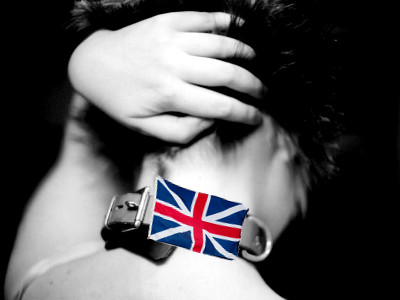Under the UK’s New VOD Regulations, BDSM is SOL
 LONDON – Looking over the list of depictions and sex acts prohibited under the newly expanded reach of the British Board of Film Censors (BBFC), one thing becomes immediately clear: When it comes to porn, the censorship brain trust at Soho Square isn’t fond of the rough stuff.
LONDON – Looking over the list of depictions and sex acts prohibited under the newly expanded reach of the British Board of Film Censors (BBFC), one thing becomes immediately clear: When it comes to porn, the censorship brain trust at Soho Square isn’t fond of the rough stuff.
Under the Audiovisual Services Regulations 2014, the BBFC’s regulatory reach has expanded to include “on-demand programme services”, meaning UK VOD services now must adhere to the same standards applied to the distribution of adult DVDs carrying an “R18” rating.
Once you drill into the specifics, the impact of this expansion of regulatory authority makes it effectively impossible for UK VOD services to distribute a broad swath of BDSM and fetish content, and makes the distribution of certain gonzo titles an iffy proposition, at best.
Prohibited sex acts and depictions include spanking “beyond a gentle level,” strangulation, face-sitting, fisting, full bondage and restraint (no ball gags allowed in combination with all four limbs being restrained) and the use of “abusive language” during sex acts, among other things.
Myles Jackman, a UK-based attorney who specializes in obscenity cases, recently noted some of the more peculiar ramifications of the expanded R18 standards in a detailed blog post.
“Gagging on cock and deep throat are acceptable if not for the whole scene,” Jackman observed. “However, language of the ‘gag on my cock’ variety is unacceptable due to the reference to choking.”
Another act prohibited under the regulations is female ejaculation, while male ejaculation is permitted. This apparent discrepancy has not escaped the notice of the BBFC’s critics, who have decried the regulations as “arbitrary and sexist.”
“Not only is the law misguided, it’s also deeply sexist,” wrote Lauren Razavi of The New Statesmen. “Showing female ejaculation on screen has been outlawed completely, while male ejaculation (on the face, breasts, feet, backside, wherever) faces no direct restrictions. Is female ejaculation really so vulgar and explicit that people shouldn’t see it, in pornography or anywhere else?”
As noted by VICE UK and other media outlets, the new regulations won’t prevent Britons from watching online pornography containing any or all of the prohibited acts. The regulations merely prevent pornographers in the UK from creating and distributing such works.
One of the more troublesome aspects behind the expansion of the BBFC’s authority is the paper-thin justification for the expansion. Under UK law, The Authority for Television On-Demand – “ATVOD” – also is granted authority over websites classified as “TV-like,” a standard as potentially expansive as it is maddeningly vague.
The vagueness of the “TV-like” standard doesn’t bother ATVOD one bit, however. From ATVOD’s perspective, it allows them great freedom to expand their authority according to shifting and evolving definitions of their own devising.
“It is a deliberately dynamic concept, and the directorate the rules come from says it should be interpreted dynamically,” helpfully explained Pete Johnson, ATVOD’s chief executive, in the VICE piece. “As the nature of television changes, so does the nature of what’s TV-like. It does include a certain amount of room for judgments to be made.”
Whatever else he might have going for him, Pete Johnson clearly has a gift for understatement.
When a “certain amount of room for judgments to be made” allows for the expansion of the TV-like designation to platforms and technologies which are nothing at all like TV, the deliberate dynamism of the concept needs to be rethought.
In any other industry, sweeping regulations that effectively gut an entire sector likely would be the target of intense opposition (or at the very least, intense scrutiny) from pro-business elements of the electorate, but porn producers cannot rely on such political or moral support.
One such British pornographer, Jerry Barnett, founder of the Sex & Censorship campaign and former owner of the UK VOD service Strictly Broadband, clearly sees the danger of “mission creep” lurking in the mix of these vague and expanding regulations. He also sees a very troubling bigger picture taking shape for the UK’s online entertainment environment.
“I’m worried this will help build the case in the future for wide-scale blocking of ‘illegal’ sites,” he said. “Along with panics over terrorism and pressure over copyright theft, we seem to be edging towards a more censored network.”
Barnett is exactly right. Clearly the UK is edging toward a more censored network, and so long as their appointed regulators believe “dynamic” and intentionally vague regulations are the way to go, that edging is going to continue – possibly right over the precipice and into sweeping, state-sponsored censorship.









